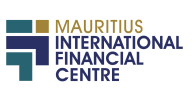Capital markets play a critical role in the global economy, functioning as channels for allocating resources from savers to those who seek capital for various purposes, such as to invest, grow businesses, or fund new initiatives. However, the smooth operation of these markets relies heavily on an often-overlooked aspect: regulation. In this article, we delve into the role of regulation in capital markets, particularly focusing on the context of Montgomery, Alabama, and the wider implications for financial systems.
Understanding Capital Markets
Before we examine the role of regulation, let’s first define what we mean by ‘capital markets’. Capital markets are venues where savings and investments are channeled between suppliers—those who have capital—and demanders, or those who need capital. The most common capital markets are the stock market and the bond market.
The Importance of Capital Markets in Montgomery, AL
In Montgomery, as in any other city, capital markets are essential for economic growth and development. They allow businesses to raise funds for expansion, innovation, and operations. This, in turn, can lead to job creation, increased production, and ultimately, a more vibrant economy.
The Necessity of Regulation
Regulation in the capital markets is crucial for a number of reasons. It helps to maintain investor confidence, protect market participants, and ensure fair and efficient markets.
Maintaining Investor Confidence
Investors need to feel confident that the markets they are putting their money into are fair and transparent. Regulation helps to provide this assurance by enforcing rules that prevent fraudulent activities, such as insider trading, and ensuring that companies provide accurate and timely information to the public.
Protecting Market Participants
Regulation also serves to protect all participants in the capital market. This includes not only investors but also issuers of securities, broker-dealers, and other intermediaries. Regulatory bodies set standards that these entities must meet to operate, helping to ensure the integrity of the market.
Ensuring Fair and Efficient Markets
A well-regulated market is typically a fair and efficient market. By setting rules on trading activities, disclosures, and financial reporting, regulators help to level the playing field for all participants, which in turn helps markets to function more efficiently.
by Grab (https://unsplash.com/@grab)
Regulatory Bodies and Their Roles
To understand regulation, one must also understand the regulators. In the United States, the primary regulatory bodies include the Securities and Exchange Commission (SEC) and the Commodity Futures Trading Commission (CFTC), among others.
The Securities and Exchange Commission (SEC)
The SEC is perhaps the most well-known regulatory body in the U.S. capital markets. It oversees securities transactions, ensures that companies make proper disclosures, and protects against fraud. Its regulatory reach extends to exchanges, securities brokers and dealers, and investment advisors.
The Commodity Futures Trading Commission (CFTC)
While the SEC focuses on securities, the CFTC regulates the U.S. derivatives markets, which include futures, swaps, and certain kinds of options. The CFTC’s role is to foster open, transparent, competitive, and financially sound markets.
State-Level Regulation
In addition to federal regulation, each state has its own securities regulator responsible for enforcing state securities laws. In Montgomery, the Alabama Securities Commission (ASC) plays this role, working to protect investors and maintain confidence in the capital market.
Regulation in Practice: Montgomery’s Capital Market
In Montgomery, and Alabama more broadly, the ASC plays a pivotal role in ensuring that the state’s capital markets operate smoothly and within the bounds of the law.
Case Studies and Success Stories
Montgomery has seen instances where regulation has directly benefited the market. For example, when local businesses comply with regulations and successfully raise capital through public offerings, it demonstrates the effectiveness of a well-regulated capital market.
Challenges and Considerations
Despite its benefits, regulation can also present challenges. Too much regulation may stifle innovation or create barriers to entry for smaller businesses. Regulators must find a balance that protects market participants without hindering the market’s ability to function and grow.
The Future of Capital Market Regulation
As the financial landscape evolves, so too must the regulations that govern it. Technological advancements, such as the rise of fintech and digital assets, are changing the way capital markets operate.
Technological Innovations and Regulations
Regulators must adapt to new technologies to ensure that they are effectively overseeing these new aspects of the capital market. This might include developing new rules for digital currencies, crowdfunding platforms, and robo-advisors.
Global Trends and Collaborations
Capital markets are increasingly global, necessitating collaboration between regulatory bodies across different jurisdictions. This helps to ensure that capital markets are safe and reliable, not just within Montgomery or the U.S., but around the world.
by Imam Fadly (https://unsplash.com/@haiiimam)
The Impact of Regulation on Investment Strategies
Regulation not only affects the operation of capital markets but also influences investment strategies. Investors must stay informed about regulatory changes that could impact their investments, such as new compliance requirements for companies or changes in tax laws.
Adapting to Regulatory Shifts
Investors and financial professionals in Montgomery’s capital market must be agile, adapting their strategies to align with the current regulatory environment. This might involve adjusting portfolios in response to regulatory changes that affect certain sectors or asset classes.
Conclusion: The Balanced Approach to Regulation
The role of regulation in capital markets cannot be overstated. It is the foundation that maintains market integrity, protects investors, and ensures that capital markets contribute positively to the economy. In Montgomery, the Alabama Securities Commission and other regulatory bodies play a vital role in overseeing these markets.
For capital markets to continue thriving, a balanced approach to regulation is required—one that safeguards investors and the market’s integrity while allowing for innovation and growth. This balance is critical for the continued success of Montgomery’s capital market and the broader financial landscape.
As capital markets continue to evolve, so will the regulations that govern them. By understanding the role of regulation and staying informed of changes, participants in the capital market can navigate this complex but essential world with confidence.
by Robert Kalinagil (https://unsplash.com/@robgun)
















































